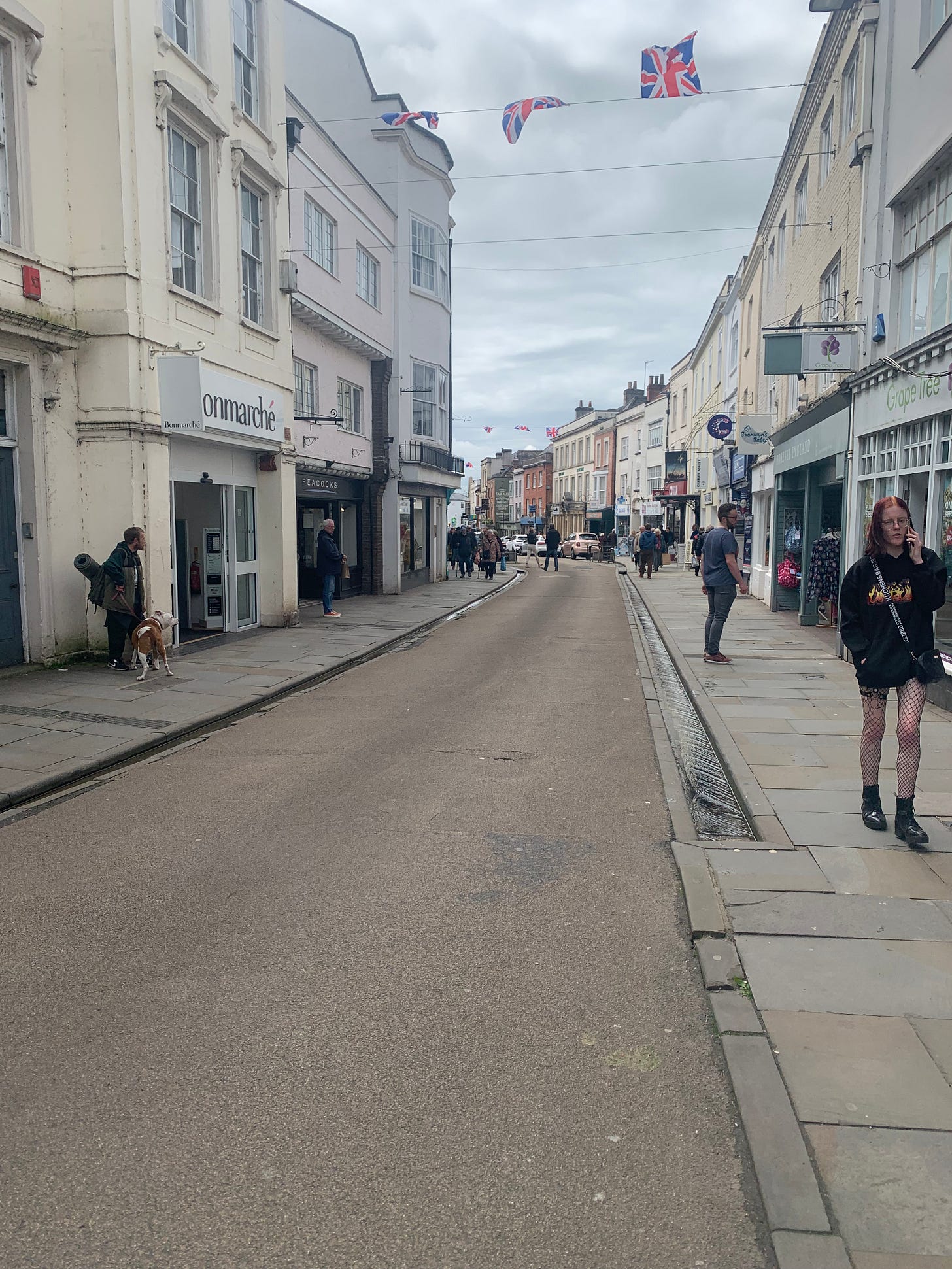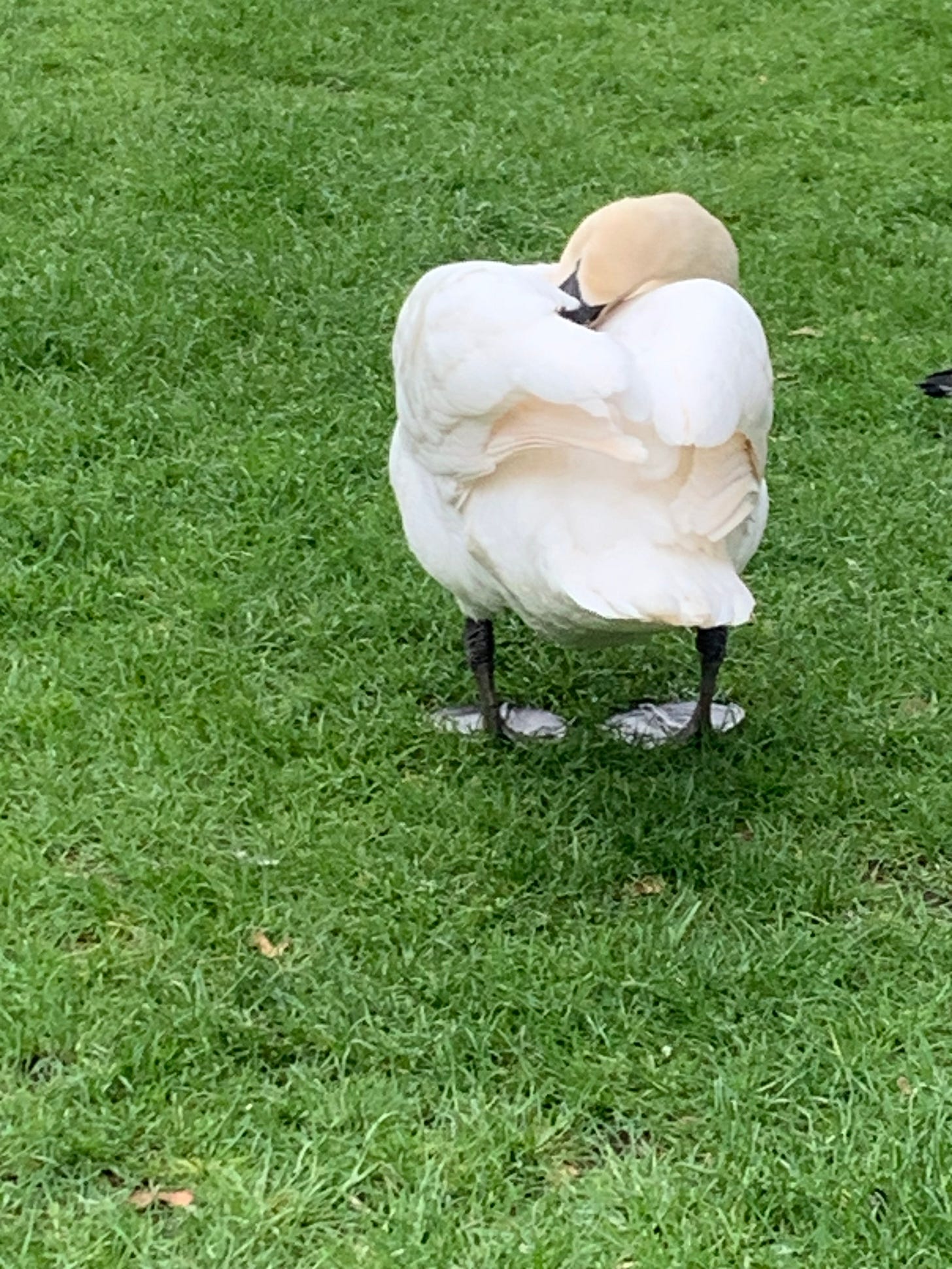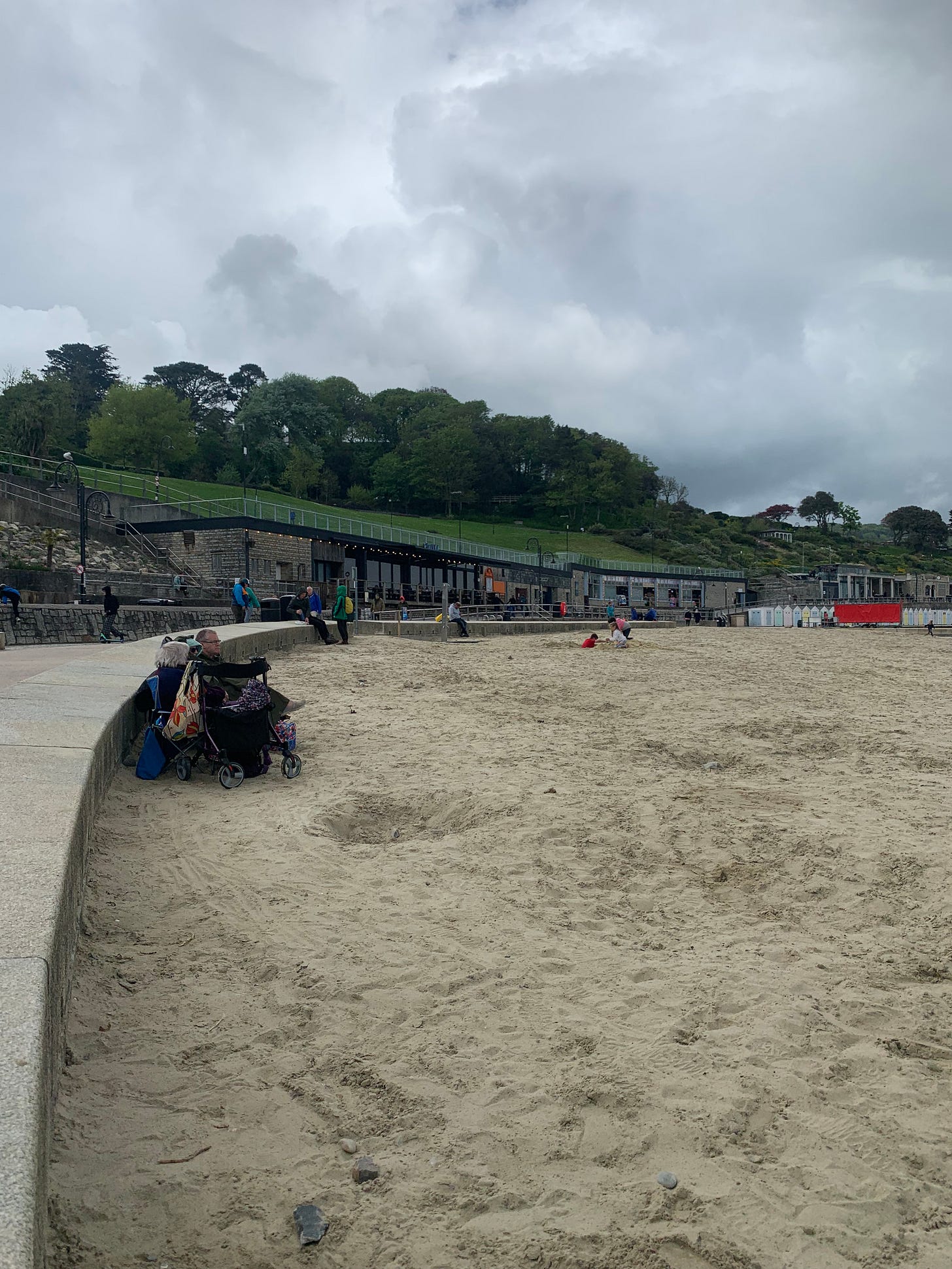At a Writing Workshop in England
Traveler’s mind is good for your writing (and you can cultivate it anywhere)
I’m in Wells, England, a small city of 11,000 which you might be apt to refer to as a town but the locals will correct you. Because Wells has a cathedral (and quite a cathedral it is) and that makes it a city. The smallest city in the U.K., but a city nonetheless. And a charming one to boot. It’s got a lively core, the afore-mentioned cathedral, and a gorgeous Bishop’s Palace complete with moat populated by swans and cygnets and an actual bishop in residence.
I’m here to teach a writing workshop which begins on Sunday, two days hence as I write this. A dozen years ago, my friend Debbie Guyol and I started a business called Let’s Go Write with the intention of holding overseas workshops. Never mind that we barely knew each other. We got to know each other well as we met weekly over wine and meals to plan world domination through writing workshops and eventually, in 2013, held our first workshop in Ceret, France. We continued to do so every year (also in Collioure and Pezenas, France) until the pandemic shut us down.
(And yes, all those French city names should have various accents on them when written but I’m working on my IPad and figuring out how to make that happen is beyond me. At least I figured out how to do links!)
Last year was our return to leading workshops overseas after the pandemic, and we chose to come to this charming city, on the recommendation of our friend Jenni, a Brit immigrant to the US, who has family in the area. She thought it would be a great spot for a writing workshop and she was correct. (We like our workshops to be located in walkable cities or towns so that students can wander, hang out in cafes, see interesting things to inspire their writing.)
Every time I travel, I marvel anew at how being in a different place affects me. There are language differences (such as all desserts being called puddings), marvelous place names (like Middle Wallop and Monkton Wyld), terrifying drives on tiny roads bordered by hedgerows (and of course, driving on the opposite of the road), lovely buildings erected before European explorers set foot in the new world. Absorbing it all is a lot—in a good way. And I think it does something to your mind. Our brains love novelty and travel is all novelty.
Research tells us that the brain likes novelty because in the olden days our brains scanned for the new in order to check for danger. (Maybe we still do this?) But recent research also shows that experiencing novelty releases dopamine and encourages us to learn more. Novelty is a reward in and of itself. (If you want to learn a lot more about this process, this site has a good explanation that is mostly understandable.)
So, obviously, travel is excellent for this. It wrenches you out of your comfort zone, sometimes in big ways—communicating in a different language, driving on the other side of the road. But it is also possible to do this at home. It’s just that most often we don’t. I was reminded of this when reading a Joanna Penn interview with Kevin Kelly, author of many books but especially, Excellent Advice For Living: Wisdom I Wish I’d Known Earlier. Because, this quote: “Expand your mind to be thinking with your feet on a walk, or with your hand in a notebook. Think outside your brain.”
But how then, do we do this? How do we think outside our brains when the way we are used to thinking is so deeply entrenched? One thing I think that is useful and under-rated is paying attention to the senses. Maybe you remember to appreciate smells and wonder at sounds as you go about your day to day life but I usually don’t. But the senses are a gateway to presence and expansion. Presence because noting them forces us into the moment and expansion because the senses can, paradoxically transport you to other times and worlds, either remembered or imagined.
A few years ago we taught a writing workshop devoted entirely to the senses. Every day we’d discuss, ponder and write about one particular sense. On the “sound” day, one of our students chose to write about waking up from a coma through the lens of the sounds she heard in the hospital room as she slowly gained consciousness: the beep of a monitor, a nurse walking by in the hallway, the hum of the IV fluid dispenser. It was brilliant and illuminating, and it went on to be published in a medical journal.
So I think you can engage your traveler’s mind by helping the brain to see novelty all around, whether you are at home or on the road. Because, after all, isn’t this what writers do for their readers? Don’t we aim to allow our readers to see the world in a new and unique way?
Yesterday we went to Lyme Regis. We were driven in a taxi by a driver named Constantine who had emigrated from Romania four years ago. “My heart belongs to Romania but England has given me everything,” he said. And because of this he worked in a care center throughout the pandemic, his way of giving back to his new country. We tooled down curvy roads, trees canopying over them in some places, views of green fields and hedgerows in others. The green is that of new growth in spring and even though Oregon, where I live, is also exceedingly green, the colors here look different. As I sat on a wall with my feet in the sand, I did my best to focus on what my senses told me. Not gonna lie, this is not that easy. At least for me, because I’m out of the habit. And I think it is like a muscle you develop the more you utilize it.
One thing that helps: explain it to yourself. I wrote a post about a similar practice not too long ago. A process of naming things can bring you into the present and activate your sensory mind. You can repeat it to yourself or if you’re like me and will surely forget, write it on your phone on an actual notebook. Later this will be gold for your writing. I’m likely never going to write a story set in Lyme Regis, but I’ll no doubt write a scene at a beach at some point in my future. And when I do, I’ll remember how the seagulls were so aggressive they plucked sandwiches out of a man’s hand, the sound of canes tapping on the sidewalk and children squealing with delight as they jumped in the sand, and the feel of the light rain on my skin.
I end with another quote from Kevin Kelly, in which he talks about what to do when you’re stuck. I think his advice applies equally to when you want to remember something or be absorbed in the moment. And it also works just as well to tell yourself or write it down. “When you are stuck, explain the problem to others. Make ‘explaining the problem’ part of your trouble-shooting solution.”
And oh, okay, I leave you with one final image: books! The most wonderful bookstore in Lyme Regis.
If you enjoyed this post or found it helpful, please feel free to share or subscribe. I’d love to have you part of the community!









Lovely! Makes me want to hop the next plane across the pond and get writing!
Fun -- Enjoyed the novel brain link!